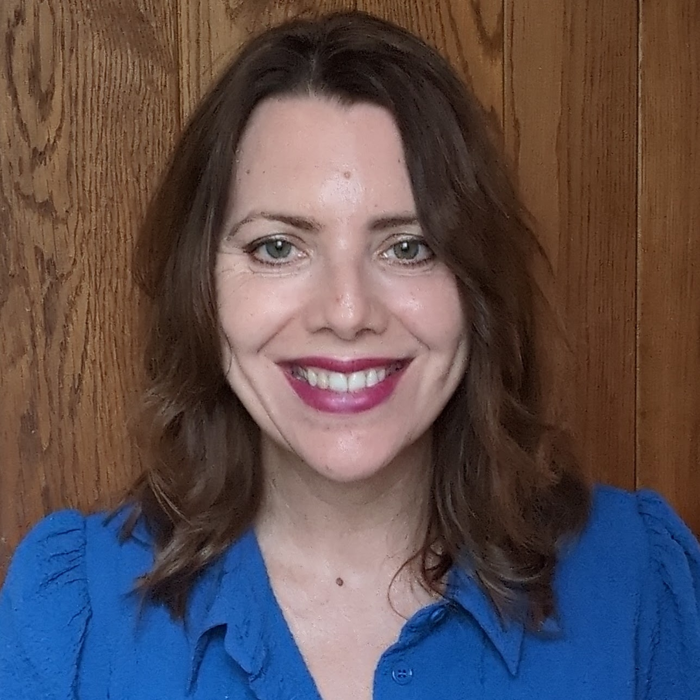Compassion Focused Training (CFT) for Singers, Singing Teachers and Other Music Professionals (2-week course)
Monday 4th December 2023, 5:00 PM - Monday 11th December 2023 7:00 PM (London Time)
During the 1980s & 90s, British psychologist Paul Gilbert & colleagues noticed a trend among certain patients who received Cognitive Behavioral Therapy (CBT) for depression: they would berate themselves for not improving in their treatment, despite having put effort into it. This astute observation led him to believe the likely reason for their lack of progress was the patients’ relentlessly self-critical thinking styles, which not only contributed to the maintenance of their depression, but likely to its origin as well.
What followed was the creation of a ground-breaking new therapy called Compassion Focused Therapy (CFT; Gilbert, 2000) that aimed to alleviate suffering by helping individuals with high shame and self-criticism to generate affiliative feelings towards themselves and a more compassionate inner voice. Rooted in evolutionary psychology, neuroscience, Buddhism, CBT, & social and developmental psychology, CFT asserts that the human brain is actually quite tricky to navigate, and thus, it’s not our fault we find ourselves struggling or suffering with it, or with life’s inevitable stressors.
Since its inception, CFT and related therapy models, e.g., Kristin Neff and Christopher Germer’s Mindful Self-Compassion (2013), have received increasing empirical support as treatments for anxiety, depression, and stress. In recent years, compassion-based programmes are starting to arise within non-clinical settings as well, e.g., with athletes, university students, and musicians, as tools for coping with similar psychological challenges. When used with athletes in particular, self-compassion is promoted as an alternative to 'mental toughness', as it helps to develop courage to face the inherent challenges within competitive sports. Although the role self-compassion plays in alleviating musicians’ psychological stressors is still under investigation, it is believed to benefit them in similar ways.
In this two-part course, you will learn about the theoretical underpinnings of Gilbert’s CFT model and Neff & Germer’s model of self-compassion. You’ll also learn about the three emotion regulation systems, and specifically how to increase activity in the Soothing & Contentment system, which is known to create feelings of safeness within oneself & with others, when activated. Specifically, you’ll learn compassion-enhancing strategies to help manage common sources of stress for musicians, i.e. dealing with mistakes & negative feedback of one’s work, audition setbacks, perfectionistic concerns of one’s performance, coping with burnout, career uncertainty & transitions, and others.
Part 1: Theoretical Models of Compassion & Common Stressors for Musicians
Monday 4th December 2023 (5-7pm UK time)
- What the research on compassion teaches us
- Gilbert’s CFT model and Neff & Germer’s model of self-compassion
- Common types of problems facing musicians
Part 2: Enhancing Compassion with Techniques from CFT & Mindful Self-Compassion
Monday 11th December 2023 (5-7pm UK time)
- Soothing breathing rhythm
- Compassionate letter writing
- Compassionate imagery
- Other skills & benefits of enhanced compassion
Dr David Juncos
David Juncos, PsyD, is a clinical psychologist, lecturer, performance coach, author, and music performance researcher based in Philadelphia, PA. He has 20 years of experience in treating a variety of clinical problems, including anxiety, mood, and substance use disorders.
Sorry, this is an archived short course...
We have plenty of upcoming short courses coming soon. See details of some of them below or look at the full list of short courses.

Tuesday 13th January 2026
5:00 PM - 6:30 PM
Tuesday 20th January 2026
5:00 PM - 6:30 PM
Tuesday 27th January 2026
5:00 PM - 6:30 PM
Tuesday 3rd February 2026
5:00 PM - 6:30 PM
Tuesday 10th February 2026
5:00 PM - 6:30 PM
(London Time)
Introduction to Postgraduate Academic Skills - Join Live!

Debbie Winter
Are you ready to elevate your academic journey? Hosted by our very own Debbie Winter, join our comprehensive Introduction to Academic Skills course, designed to equip you with essential tools and strategies for success in higher education. Perfect for bridging the gap between undergraduate and postgraduate study, this course offers a pathway to our full MA for students without an existing degree. We offer both live, interactive sessions and standalone, pre-recorded content.

Thursday 15th January 2026
5:00 PM - 7:00 PM
Thursday 22nd January 2026
5:00 PM - 7:00 PM
Thursday 29th January 2026
5:00 PM - 7:00 PM
Thursday 5th February 2026
5:00 PM - 7:00 PM
Thursday 12th February 2026
5:00 PM - 7:00 PM
(London Time)
Trauma-Sensitive Voice Professional Certificate with Dr Elisa Monti

Dr Elisa Monti
Updated for 2026, this five-part certificate course is designed to help participants learn the theory and practice of trauma-sensitive approaches. The concepts and activities included are tailored to meet the needs of voice specialists who want to acquire more specific tools to navigate the space with their students and colleagues.

Monday 9th February 2026
5:00 PM - 7:00 PM
(London Time)
Certificate in Applied Voice Pedagogy with Adam Roberts

Adam Roberts
Spring Immersive - live and interactive learning! This 12-week online programme is designed for voice professionals committed to deepening applied voice pedagogy skills and advancing professional practice. The course offers a rich environment to reflect on your teaching philosophy and develop applied pedagogical techniques. It is ideal for voice teachers, coaches, therapists, and performers seeking to bridge foundational knowledge with practical, student-centered applications.
